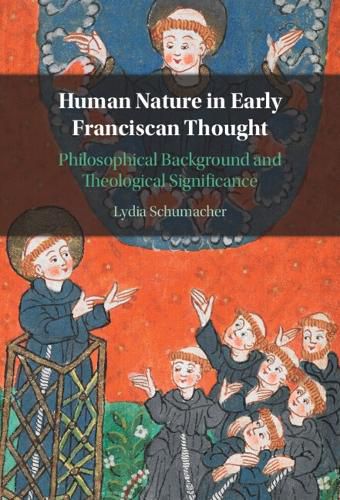Readings Newsletter
Become a Readings Member to make your shopping experience even easier.
Sign in or sign up for free!
You’re not far away from qualifying for FREE standard shipping within Australia
You’ve qualified for FREE standard shipping within Australia
The cart is loading…






In this book, Lydia Schumacher challenges the common assumption that early Franciscan thought simply reiterates the longstanding tradition of Augustine. She demonstrates how scholars from this tradition incorporated the work of Islamic and Jewish philosophers, whose works had recently been translated from Arabic, with a view to developing a unique approach to questions of human nature. These questions pertain to perennial philosophical concerns about the relationship between the body and the soul, the work of human cognition and sensation, and the power of free will. By highlighting the Arabic sources of early Franciscan views on these matters, Schumacher illustrates how scholars working in the early thirteenth century anticipated later developments in Franciscan thought which have often been described as novel or unprecedented. Above all, her study demonstrates that the early Franciscan philosophy of human nature was formulated with a view to bolstering the order’s specific theological and religious ideals.
$9.00 standard shipping within Australia
FREE standard shipping within Australia for orders over $100.00
Express & International shipping calculated at checkout
In this book, Lydia Schumacher challenges the common assumption that early Franciscan thought simply reiterates the longstanding tradition of Augustine. She demonstrates how scholars from this tradition incorporated the work of Islamic and Jewish philosophers, whose works had recently been translated from Arabic, with a view to developing a unique approach to questions of human nature. These questions pertain to perennial philosophical concerns about the relationship between the body and the soul, the work of human cognition and sensation, and the power of free will. By highlighting the Arabic sources of early Franciscan views on these matters, Schumacher illustrates how scholars working in the early thirteenth century anticipated later developments in Franciscan thought which have often been described as novel or unprecedented. Above all, her study demonstrates that the early Franciscan philosophy of human nature was formulated with a view to bolstering the order’s specific theological and religious ideals.